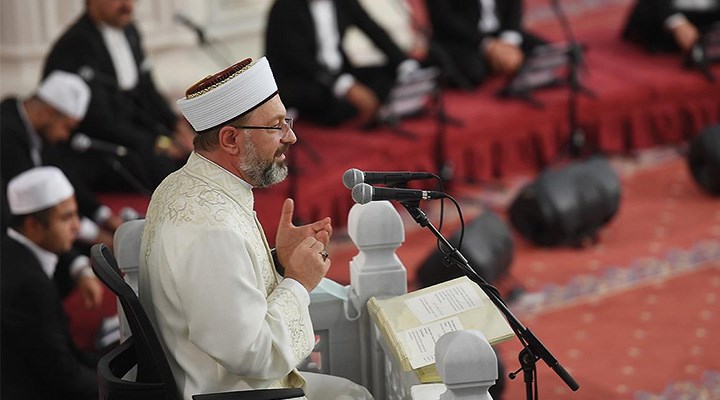Turkey’s Religious Affairs Directorate (Diyanet) will have a budget in 2023 that will be far bigger than the budgets of seven out of 17 ministries in the country, the Cumhuriyet daily reported on Tuesday, citing Turkey’s new Medium Term Program (OVP).
The presidential decree approving the OVP, which was prepared jointly by the Ministry of Treasury and Finance and the Strategy and Budget Directorate –- tied to the presidency -– and revised the country’s economic goals for the 2023-2025 period, was published in the Official Gazette over the weekend.
Accordingly, the directorate will be allocated a budget of TL 35.9 billion ($1.9 billion), a 13 billion lira increase over its 2022 budget, which corresponds to more than 60 percent.
The Diyanet’s 2023 budget exceeds the budgets of the Interior Ministry (TL 32.6 billion), the Ministry of Environment, Urbanization and Climate Change (TL 24.3 billion), the Trade Ministry (TL 17.1 billion), the Foreign Ministry (TL 16.7 billion), the Ministry of Energy and Natural Resources (TL 15.7 billion), the Ministry of Industry and Technology (TL 14.9 billion) and the Ministry of Culture and Tourism (TL 11.4 billion).
The directorate’s 2023 budget also tops the budgets allocated for the Disaster and Emergency Management Presidency (TL 6.8 billion), the presidency (TL 6.6 billion), the Turkish Parliament (TL 5.2 billion), the Directorate of Communications (TL 1.6 billion), the Supreme Court of Appeals (TL 1.2 billion), the Court of Accounts (TL 1.2 billion), the Council of State (TL 805.4 million), the Directorate of National Palaces (TL 669.8 million) and the Constitutional Court (TL 260.9 million).
The Diyanet was established in 1924 shortly after the founding of the modern Turkish republic. Its purpose was to ensure proper religious education and the separation of religion and the state. The Diyanet also appoints imams and drafts weekly sermons for delivery in the nation’s mosques.
The directorate is one of the most controversial institutions in Turkey as it has long been criticized for promoting only Sunni Islam and for indifference to other beliefs and the needs of their followers in the country.
Although it mostly remained out of politics before the rule of the Justice and Development Party (AKP), the Diyanet has gained more power and influence during its time in office, and its presidents are frequently criticized for promoting the AKP’s agenda using Islamic references.
Although it is supposed to be apolitical, according to the constitution, the Diyanet has been increasingly politicized in recent years to the point that President Recep Tayyip Erdoğan compared the staff and imams of the directorate to “members of the army” in 2018.
The Turkish government has been accused of incorporating political issues into Friday sermons and using the directorate as an instrument to silence dissent and cover up wrongdoing.


